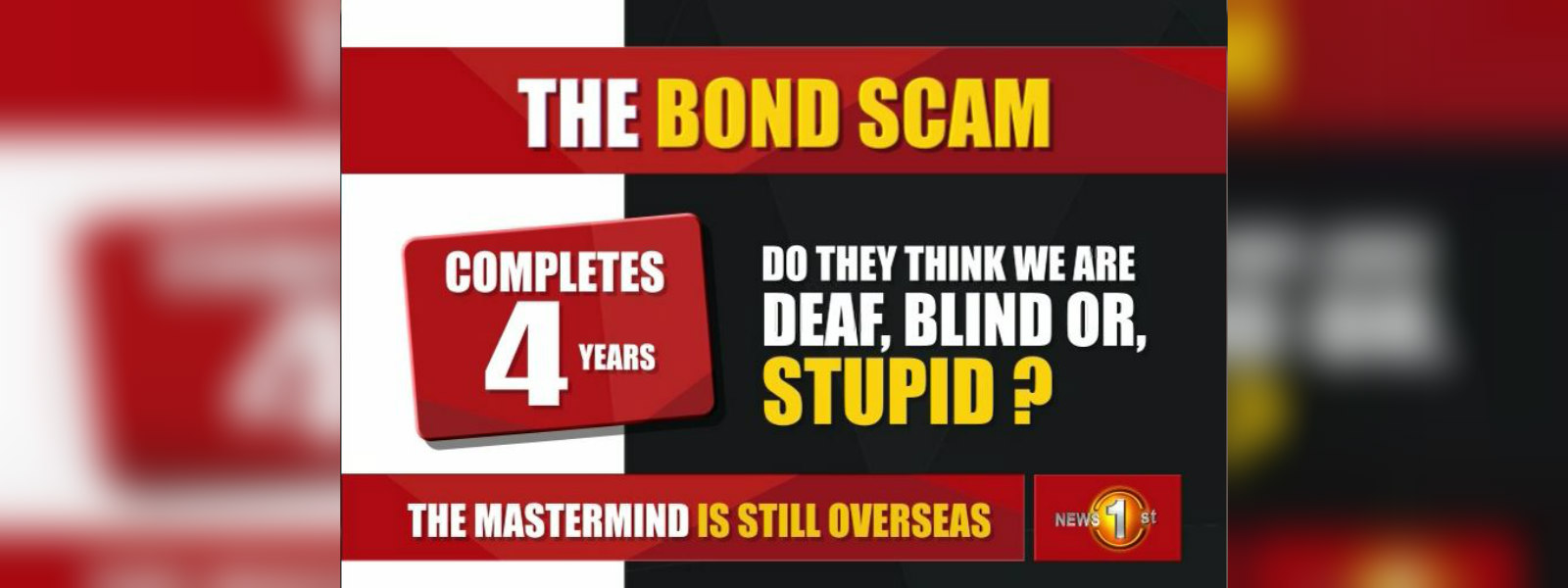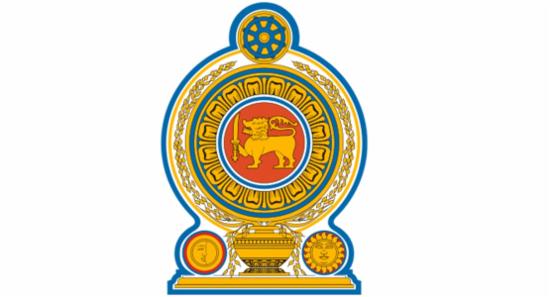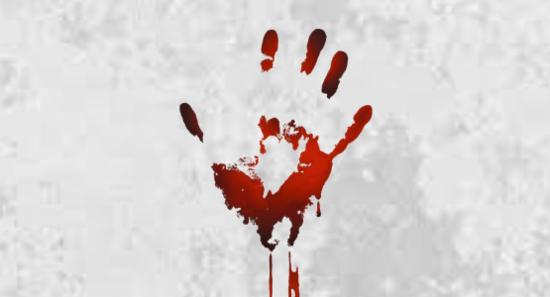.webp)

FOUR YEARS since the infamous bond scam that rocked the country with the biggest ever financial loss
COLOMBO (News 1st) - Today is the 4th anniversary of the infamous bond auction of February 27, 2015.
Four years ago the Central Bank of Sri Lanka, under Governor Arjuna Mahendran, advertised a bond of Rs 1 billion for 30 years. When the auction closed the governor decided to take up twenty times that value - Rs 20 billion. In the face of opposition from Central Bank personnel, he decided to reduce that to Rs 10 billion. Perpetual Treasuries ended up with the lion's share of the Rs 10 billion and part of it was achieved at an extraordinarily high rate of 12.05% while the rate prevailing before this auction was in the region of 9.85%. Significantly the Bank of Ceylon, also a primary dealer, made a bid for and on behalf of Perpetual Treasuries.
As public concern grew and the media interest reached new levels, Prime Minister Wickremesinghe decided the matter was worthy of his interest and intervention - on March 17th, 2015 he made a speech in parliament. The Prime Minister was unambiguous and he said that he 'insisted' on a change of system and blamed it on corruption in the previous administration. He appointed his own committee - the Pitipana Committee to investigate the matter, and the former Governor Mahendran was cleared of any wrong doing.
Then the Speaker Chamal Rajapaksa invited D.E.W. Gunasekera to be the Chairman of COPE in order to investigate the bond auction of February 27th. On the day the D.E.W. Gunasekera report was to be tabled in parliament, fortunately for those involved in the bond scam, parliament was dissolved on June 26th 2015. With that, the inquiries into the bond scandal came to a grinding halt.
A notable feature of the COPE report was that Arjuna Mahendran, under oath, stated that he had 'only followed the Prime Minister's instructions.' Three months after parliamentary elections on August 17th 2015, Prime Minister Wickremesinghe appointed Sunil Handunetti as Chairman of COPE to restart the investigation on November 26th 2015. On March 29th and 30th 2016, two more controversial bond auctions were held. In October 2016 the UNP members of COPE signed off the report but added FOOTNOTES challenging some of the conclusions of the COPE report.
On January 27th 2017, responding to growing parliamentary and public sentiment, President Sirisena appointed a Presidential Commission of Inquiry to look into the issuance of bonds between February 2015 and March 2016. Over the 11 months that followed the nation looked on in disbelief as the scale of the bond scam that unravelled during the inquiry.
On December 30th 2017 the PCoI delivered the report to the President who sent it to the Attorney General's department.
Findings on key people in the report were:
1. Arjuna Mahendran acted mala fide and had shared sensitive information that had benefitted Perpetual Treasuries.
2. His son in law Arjun Aloysius, part owner of Perpetual Treasuries was alleged to have used his relationship with Mahendran to obtain inside information and make massive profits at the expense of government institutions.
3. Ravi Karunanayake faces allegations of bribery. He was removed from the position of Finance Minister and was given the Foreign Affairs ministry. He then resigned in August 2017 following the revelations during the inquiry.
4. The Prime Minister Ranil Wickremesinghe was found to have been ill-advised by Mahendran and Deputy Governor Samarasiri.
Two key recommendations were made by the Commission of Inquiry :
1. A FORENSIC AUDIT of all the trades conducted by Perpetual Treasuries and other primary dealers involved in the bond auctions be carried out.
2. To institute legal action against those accountable.
To this effect a notice has been issued on Arjuna Mahendran, however, efforts to locate Mahendran in Singapore have failed. He continues to be out of the reach of Sri Lanka's law enforcement authorities.
Arjun Aloysius and Kasun Palisena were detained at the Colombo Remand Prison for almost 10 long months and were released this year. Ranil Wickremesinghe remains the Prime Minister of the country despite a constitutional crisis of 51 days. Four years after the biggest financial crime in Sri Lanka's history and no one in government has been held accountable or successfully prosecuted.
Other Articles
Featured News





.png )

-788774_850x460-788805_550x300.jpg)


-788786_550x300.jpg)
-788774_550x300.jpg)

-788581_550x300.jpg)



-785316_550x300.jpg)
















.gif)